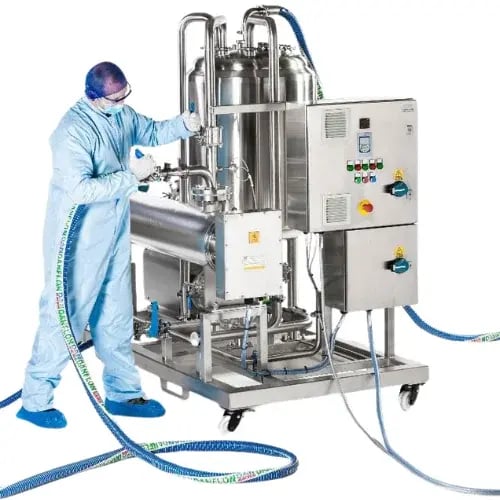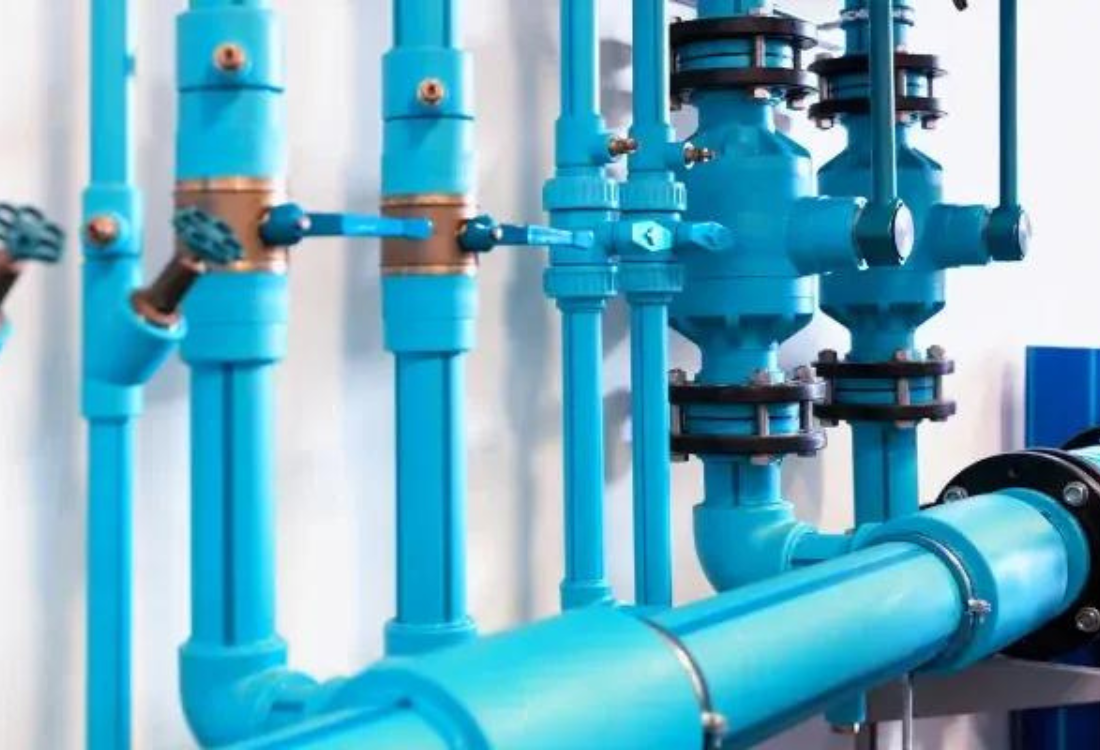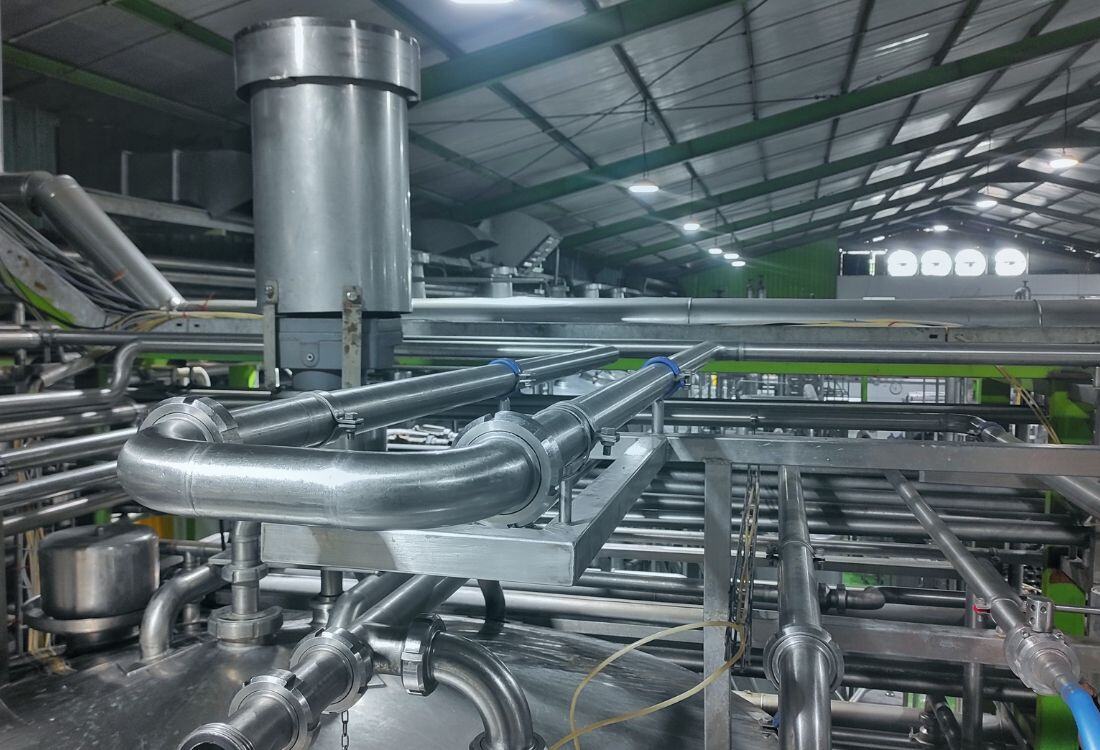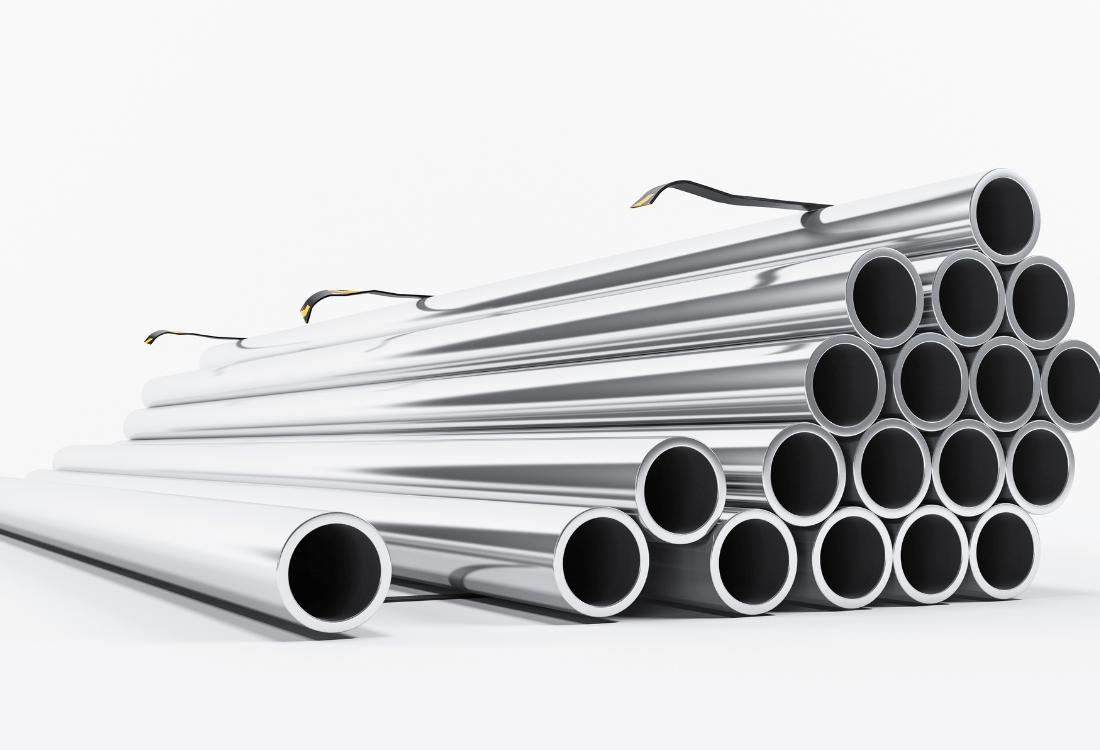Specialised Passivation for High-Purity Environments
As our name suggests, INOX Passivation are specialists in passivation processes. Using proprietary chemical blends and equipment specially produced for the pharmaceutical industry, our process is suitable for high-purity environments, and is designed to reduce safety and environmental risks commonly associated with chemical cleaning. In many cases, our products are non-hazardous and pH neutral and can be sent directly to the client waste system. Our passivation process will significantly increase the chrome-iron ratio of your stainless steel components, and exceed the recommended requirements set by ASME BPE.

Why Passivation Matters
Repair/Cleaning of surfaces
A comprehensive passivation process will remove all extraneous material from the stainless steel component, often introduced during fabrication and installation. This will ensure that the surface is in the optimal minicondition to form a consistent and all-encompassing passive layer – that gives stainless steel its corrosion resistant qualities.
Improved corrosion resistance
Passivation removes free-iron and leaves a chromium-enriched surface. ASME BPE recommends that the chrome to iron ratio is above 1.3. A correctly passivated surface (using our proprietary citric acid blend), should achieve a Cr/Fe ratio in excess of 1.8. The more chromium on the surface available for oxidation, the more effective the passive layer – and the more corrosion resistant the component.
Adherence with ASTM & ASME
Although many clients have their own internal specifications, they are largely based upon the two commonly known specifications – ASTM A967 and ASME BPE. These specifications are typically referred to during installation, commissioning and the ongoing validation of a stainless steel system. Our passivation process conforms with both specifications, and exceeds the minimum requirements set by them.
Delayed formation of rouge
Rouge is a naturally occurring phenomena on stainless steel in (usually hot) purified aqueous media. Whilst there are various mechanisms that can cause the onset of rouge, class 1 rouge is usually considered to originate from iron particles within the system. These particles could have detached from components within the system that are of a lower grade material or are damaged (pump cavitation for example), but they are more likely to have been introduced during fabrication and installation. Thorough passivation will remove this debris, thereby removing the material that would otherwise cause rouge early on during the equipment’s life-cycle.
Frequently Asked Questions
Chemical passivation is the process which the stainless steel surface is exposed to a chemical in order to remove any contamination and increase the chromium to iron ratio. This leaves the surface inert and in optimal condition for forming a dense chrome-oxide layer. Oxidising chemicals can augment the formation of this passive film, ensuring that the stainless surface is not left unprotected.
Un-passivated stainless steel (particularly after fabrication), is vulnerable to corrosion through surface contamination.
Pickling is generally specified when the component needs scale, weld-heat-tint and metallic contamination removing. It etches the surface (and therefore is not suitable for polished finishes).
Passivation will not damage the surface finish. It will only remove lightly adhered ferrous contaminants (free-iron) and helps to restore the chrome-oxide layer (passive layer) that makes stainless steel corrosion resistant.
Derouging is a term used to describe the removal of “rouge” – an unusual form of corrosion peculiar to high-purity water and steam systems. Rouge is most commonly found in a pharmaceutical manufacturing environment.
After derouging, passivation is required to optimise/form the passive layer.
We can passivate the stainless steel – in all of its forms (martensitic, ferritic, austenitic, duplex, etc.) Other chrome-nickel alloys (such as Hastelloy, etc.) can and should also be passivated to improve the corrosion resistance.
The recognised tests can be loosely grouped together into four categories. Accelerated corrosion testing, positive-indication testing, electrochemical testing and surface chemical analysis.
When using carefully selected chemicals, passivation will not damage the surface finish. Your passivation provider should also consider other materials within the system that could be adversely affected by acids, etc. These include gaskets, seals, glass, and many other items.
Passivation will not remove weld-heat-tint or rouge. Pickling is required to remove weld-heat-tint. A dedicated derouging process is required to ensure the removal of rouge.
The chrome-oxide layer that gives stainless steel its protective properties is easily damaged during the various fabrication and handling processes that it goes through before it goes into service. A thorough passivation process will remove contaminants and restore the passive layer, ensuring that (in a suitable environment), the component is not going to corrode, and you will get the best possible performance from your equipment.
This is very subjective and can be affected by many things. In most cases, a fairly typical purified water loop (<1,000 litres volume) can be fully degreased and passivated within 1 to 2 days, dependent upon the complexity.
Find Out More
To find out more about our passivation and derouging services and how they can support your business, please get in touch with one of our experts today by clicking here.
Speak To An Expert
Submit A Question Or Enquiry And Speak To One Of Our Experts To Find Out More!
Submit an enquiry with your question, to give us a brief or to request a call back from one of our experts.
When you get in touch with INOX:
We'll contact you back as soon as we are able to
We'll always aim to provide 'best advice' for your business
We offer a free initial consultation
Your information is treated in the strictest confidence
You can ask us for advice or help on any or all of the following:
- Passivation
- Derouging
- Oxygen Cleaning
- Biofilm Removal
- Riboflavin Testing
- Pre-Commissioning Flushing
- Carbon Steel Pickling
Simply confirm your details on the form provided and we'll be in touch ASAP. We look forward to hearing from you!
From Our Blog

Benefits Of Stainless Steel Pickling In The Power Generation Industry

Rouge Types: What Are The Three Main Classes Of Rouge?


